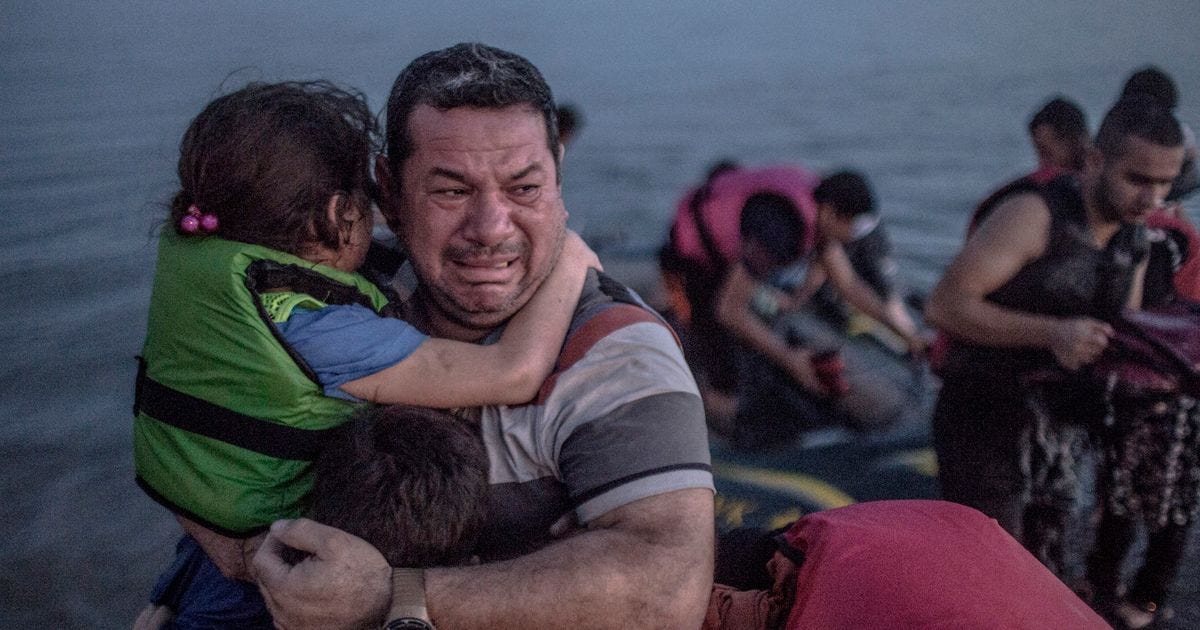Who is my Neighbour? - Parish Newsletter for October 2015
Migrants have been in the headlines a lot over the summer. Initially many of the papers were focussed on the problems with migrants around Calais, the disruption this caused and the ineffectiveness of the government in tackling the ’problem’. In June an edition of Songs of Praise was filmed amongst the migrants in Calais and the producers were heavily criticised on social media as well as by sections of the press and some politicians for 'wasting taxpayer's money' and, for the greatest of religious sins… 'becoming political'.

Then, with the publication of the picture of the body of three year old Aylan Kurdi, there was a massive change in the rhetoric. The focus shifted from disruption in Calais to the refugee crisis and the causes behind the mass migration that we are seeing. Public pressure mounted for a response from government and the huge humanitarian crisis that has been going on for years is now the major focus of media attention. To be fair there have been reports on the scale of the crisis from time to time, but nothing like the focus that there is now.
Why did one picture cause such a huge change? I think a key factor is the names/labels we give to people.
We all use names for groups of people as a way of describing them. Whether that is down to their county of origin, the football club they support, their accent, their ethnicity, etc. (he’s a northerner, a city fan, posh, white, etc). Many such terms might seem a ‘harmless’ shorthand, but psychological studies have found that the labels we give people change our perception of them. There was a petition going round in the summer asking the BBC to change their label for the current crisis from ‘Migrant’ to ‘Refugee’. The BBC defended their position explaining that all people leaving one country to move to another are called migrants (whether for economic reasons, persecution, war, etc.) they only become refugees when they have been given refugee status. The trouble is that both words are labels for groups of people that make them less than human.
Whatever we call them, they are first and foremost human beings, like us, who have seen unimaginable horrors, are desperate and who need help. When we are confronted with pictures like that of Aylan Kurdi, we are reminded that we are in the midst of an unfolding human tragedy, not a ‘Migrant Crisis’, and when we recognise the shared humanity that we have with those that are suffering then we are moved with compassion.
When we ignore the plight of our fellow human beings, no matter how different they are to us, then we are diminished ourselves. When Jesus repeated the Jewish command to ‘love your neighbour as yourself’ the legal experts challenged him with the question, ‘Who is my neighbour?’ In response Jesus told the now famous parable of the Good Samaritan. Jews and Samaritans hated each other, yet it was a Samaritan who stopped to help the Jew who had been robbed and beaten (you can read the whole story in Luke 10:25-37). Jesus told those listening that they were to go and do the same; help anyone from anywhere that was in need no matter how different they might be.

There are no easy solutions to the complex conflict in Syria and the scale of the human tragedy it is causing is hard to comprehend - one of the refugee camps in Jordan is now home to over 80,000 people which is more than the population of Leamington and Warwick combined. And that is just a small fraction of the 3 million people that have fled Syria and the 7 million more that have been displaced within the country.
The situation seems overwhelming, but there are many organisations that are making a difference and there are things we can do. You can read about and support what Tearfund are doing on www.tearfund.org/en/latest/syria/ and a search on the internet will throw up a large number of other charities and government organisations that are working to help those in need. Locally, the SALT group at Kineton High School is focussing on refugee support this year and the proceeds from the Kineton/Combroke harvest supper will go to Tearfund’s work in this area.
One person cannot make a huge difference in the world, but they can make a world of difference in the life of another person. And one life at a time, we can make a difference.
Rev Barry Jackson


